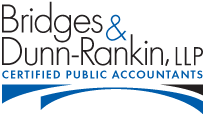Private Foundations, Donor Advised Funds, and 501(c)(4)s
By Kenneth H. Bridges, CPA, PFS December 2022
For those who wish to get a charitable donations tax deduction today (e.g. potentially matching the deduction against a large gain from sale of their business), but wish to effectively control the money for a long period of time (perhaps even leaving a legacy for future generations to manage), a private foundation can work well. With a private foundation, you get a tax deduction when the money goes into the foundation, but are typically only required to distribute 5% of the value of the foundation’s assets to charities each year. Also, you can gift appreciated securities to the foundation, and the foundation can sell the securities and incur only a fairly minimal level of tax on the gain (generally 1.39%).
One downside to private foundations, however, is that you must detail on the annual Form 990-PF each charitable distribution made, and 990-PFs are available to the public. However, if a private foundation makes a charitable distribution to a donor advised fund (DAF), only the name of the DAF appears on its 990-PF. The individual(s) who controls the private foundation can then make distributions to the ultimate charitable recipients without the names of such organizations being made publicly-available. A gift from the foundation to a DAF may also satisfy the 5% charitable distribution rule, while effectively delaying distribution to end-user charities.
Some people skip the step of setting up their own private foundation, and simply make charitable gifts directly to a DAF (which is another way of getting an upfront deduction while retaining some level of control, albeit not quite the level of control you have with your own private foundation). While the funds are under the control of the DAF, DAFs have a history of making charitable gifts from such funds at the direction of the donor.
For those who cannot use a large charitable tax deduction (e.g. they already have charitable deduction carryforwards due to the percentage of AGI limitations), formation of a 501(c)(4) organization (rather than a 501(c)(3) private foundation) may provide them a way to maintain family control over wealth or a large business holding without the limitations imposed on 501(c)(3) private foundations (e.g. prohibitions on “excess business holdings” and political lobbying); so long as the organization is “not organized for profit, but operated exclusively for the promotion of social welfare”.
Kenneth H. Bridges, CPA, PFS is a partner with Bridges & Dunn-Rankin, LLP, an Atlanta-based CPA firm.
This article is presented for educational and informational purposes only, and is not intended to constitute legal, tax or accounting advice. The article provides only a very general summary of complex rules. For advice on how these rules may apply to your specific situation, contact a professional tax advisor.
